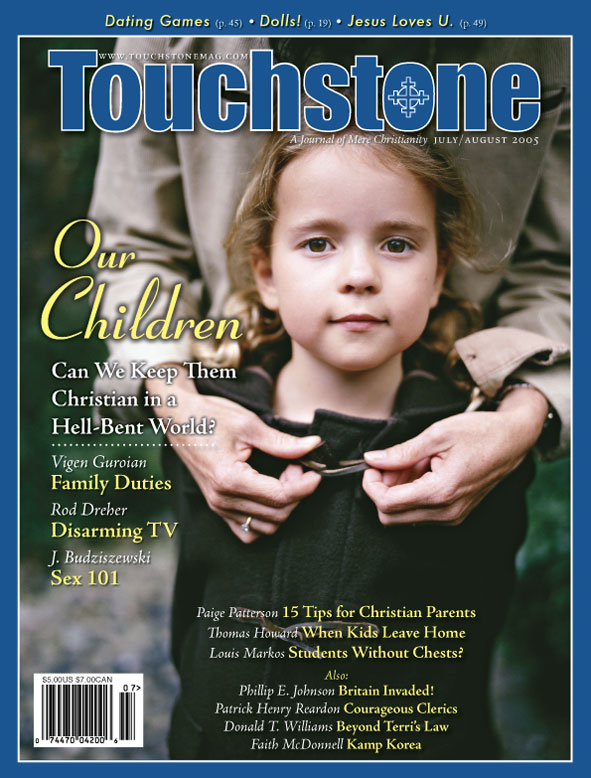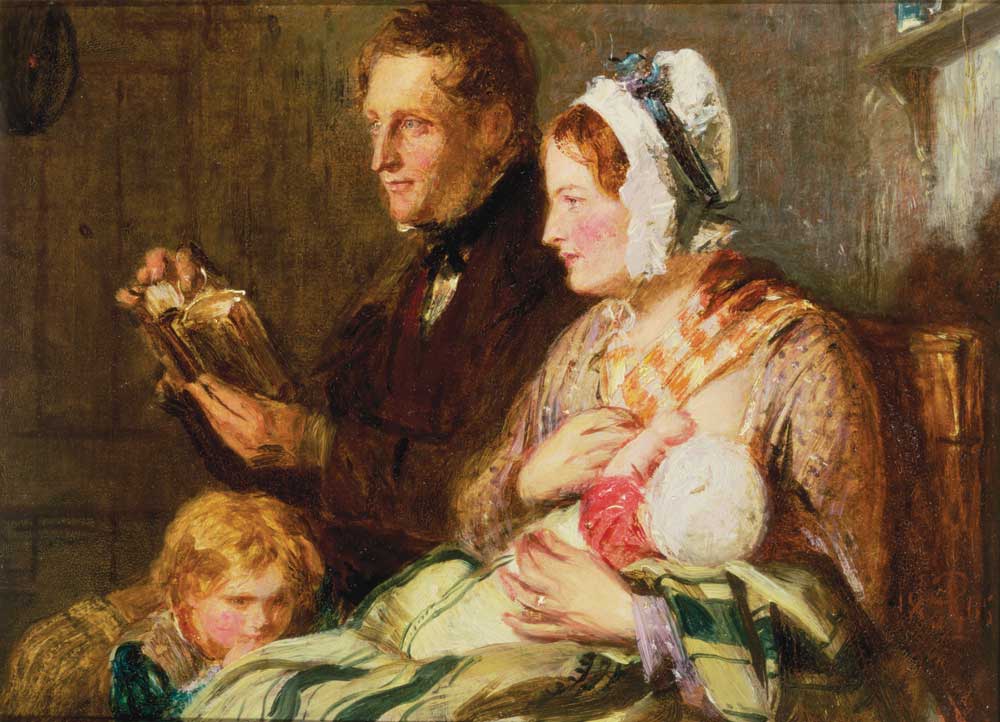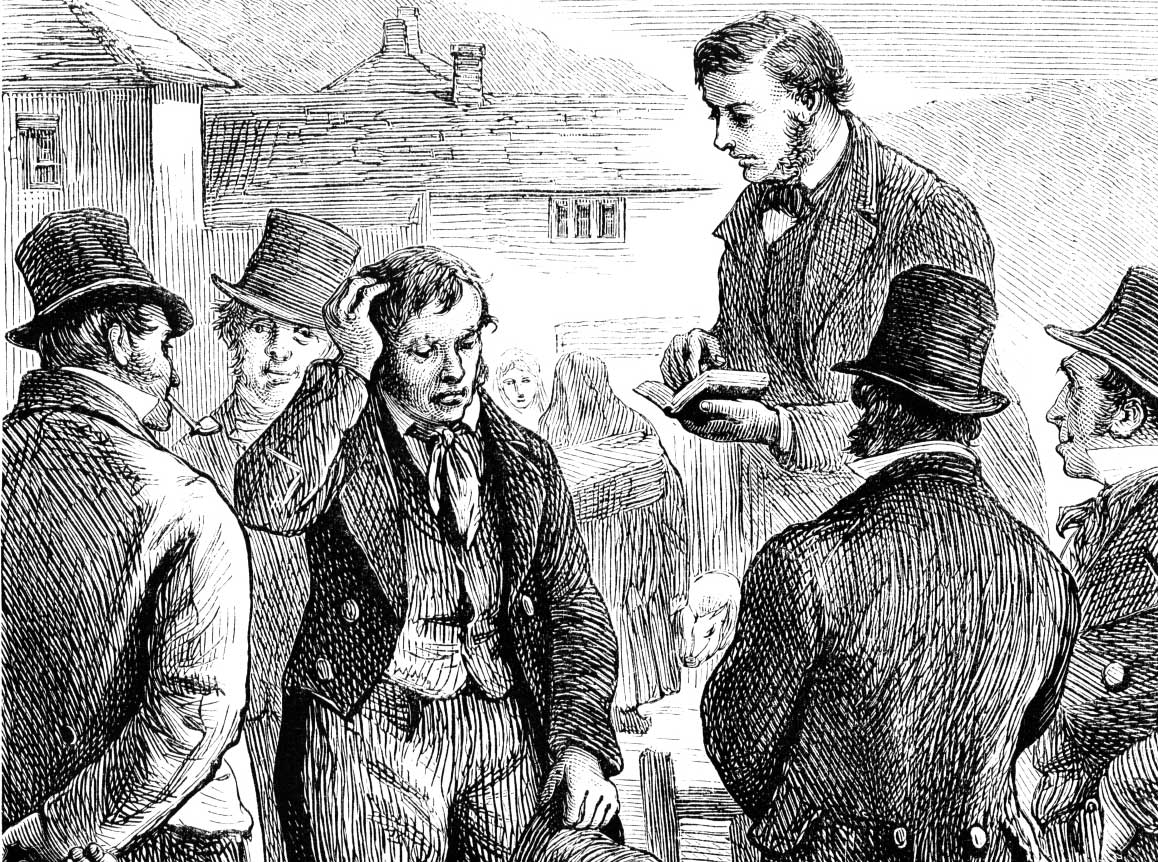Feature
The Natural Laws of Sex
What We Lose When We Forget What Sex Is For
by J. Budziszewski
Midnight. Shelly is getting herself drunk so that she can bring herself to go home with the strange man seated next to her at the bar. One o’clock. Steven is busy downloading pornographic images of children from Internet bulletin boards. Two o’clock. Marjorie, who used to spend every Friday night in bed with a different man, has been binging and purging since eleven. Three o’clock. Pablo stares through the darkness at the ceiling, wondering how to convince his girlfriend to have an abortion. Four o’clock. After partying all night, Jesse takes another man home, not mentioning that he tests positive for an incurable STD. Five o’clock. Lisa is in the bathroom, cutting herself delicately with a razor. This isn’t what my generation expected when it invented the sexual revolution. The game isn’t fun anymore. Even some of the diehard proponents of that enslaving liberation have begun to show signs of fatigue and confusion.
Liberation Fatigue
Naomi Wolf, in her book Promiscuities, reports that when she lost her own virginity at age 15, there was “something important missing.” Apparently, the thing missing was the very sense that anything could be important. In her book Last Night in Paradise, Katie Roiphe poignantly wonders what could be wrong with freedom: “It’s not the absence of rules exactly, the dizzying sense that we can do whatever we want, but the sudden realization that nothing we do matters.”
Desperate to find a way to make it matter, some young male homosexuals court death, deliberately seeking out men with deadly infections as partners; this is called “bug chasing.” At the opposite extreme, some of those who languish in the shadow of the revolution toy with the idea of abstinence—but an abstinence that arises less from purity or principle than from boredom, fear, and disgust. In Hollywood, of all places, it has become fashionable to talk up Buddhism, a doctrine that finds the cure of suffering in the ending of desire, and the cure of desire in annihilation.
Speaking of exhaustion, let me tell you about my students. In the ’80s, if I suggested in class that there might be any problem with sexual liberation, they said that everything was fine—what was I talking about? Now if I raise questions, many of them speak differently. Although they still live like libertines, it’s getting old. They are beginning to sound like the children of third-generation Maoists.
My generation may have ordered the sexual revolution; theirs is paying the price. I am not speaking only of the medical price of sexual promiscuity. To be sure, those consequences are ruinous: At the beginning of the revolution, most physicians had to worry about only two or three sexually transmitted diseases, and now it is more like two or three dozen. But I am not speaking only of broken bodies. I am speaking, for example, of broken childhoods. What is it like for your family to break up? What is it like to be passed from stepparent to stepparent to stepparent? What is it like to grow up knowing that you would have had a sister, but she was aborted?
A young man remarked in one of my classes that he longed to get married and stay married to the same woman forever, but because his own parents hadn’t been able to manage it, he was afraid to get married at all. Women show signs of avoidance too, but in a more conflicted way. According to a survey commissioned by the Independent Women’s Forum, Norval Glenn and Elizabeth Marquardt of the Institute for American Values found that 83 percent of college women say marriage is a very important goal for them. Yet 40 percent of them engage in “hooking up”—physical encounters (commonly oral sex) without any expectation of relationship whatsoever.
Do you hear a little cognitive dissonance there? Can you think of a sexual behavior less likely to get you into marriage? The ideology of hooking up says that sex is merely release or recreation. You have some friends for friendship and you have other friends just for hooking up—they’re called “friends with benefits.” What your body does is unrelated to your heart.
Don’t believe it. The same survey reports that hooking up commonly takes place when both participants are drinking or drunk, and it’s not hard to guess the reason why: After a certain amount of this, you may need to get drunk to go through with it.
J. Budziszewski is Professor of Government and Philosophy at the University of Texas, Austin, and the author of What We Can't Not Know (Spence) and Ask Me Anything (NavPress). is a professor of government and philosophy at the University of Texas, Austin, where he also teaches courses in the law school and the religious studies department. His books include What We Can’t Not Know: A Guide (2d ed. Ignatius, 2011), Commentary on Thomas Aquinas’s Virtue Ethics (Cambridge Univ. Press, 2017), and On the Meaning of Sex (ISI Press, 2012).
subscription options
Order
Print/Online Subscription

Get six issues (one year) of Touchstone PLUS full online access including pdf downloads for only $39.95. That's only $3.34 per month!
Order
Online Only
Subscription

Get a one-year full-access subscription to the Touchstone online archives for only $19.95. That's only $1.66 per month!
bulk subscriptions
Order Touchstone subscriptions in bulk and save $10 per sub! Each subscription includes 6 issues of Touchstone plus full online access to touchstonemag.com—including archives, videos, and pdf downloads of recent issues for only $29.95 each! Great for churches or study groups.
Transactions will be processed on a secure server.
more on sex from the online archives

28.3—May/June 2015
Of Bicycles, Sex, & Natural Law
Describing Human Ends & Our Limitations Is Neither Futile Nor Unloving by R. V. Young
more from the online archives

24.6—Nov/Dec 2011
Liberty, Conscience & Autonomy
How the Culture War of the Roaring Twenties Set the Stage for Today’s Catholic & Evangelical Alliance by Barry Hankins
calling all readers
Please Donate
"There are magazines worth reading but few worth saving . . . Touchstone is just such a magazine."
—Alice von Hildebrand
"Here we do not concede one square millimeter of territory to falsehood, folly, contemporary sentimentality, or fashion. We speak the truth, and let God be our judge. . . . Touchstone is the one committedly Christian conservative journal."
—Anthony Esolen, Touchstone senior editor












